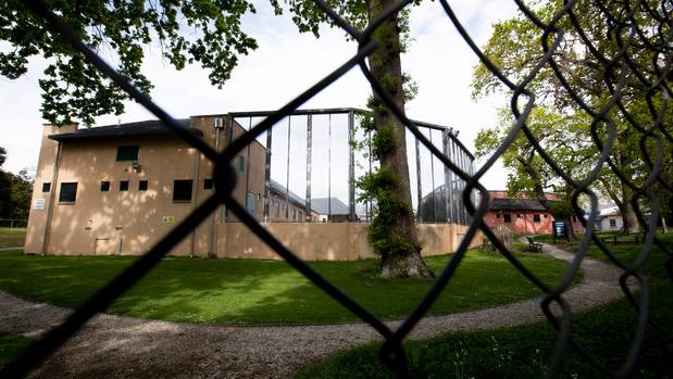
Women with intellectual disabilities are sharing bedroom corridors with "predatory" men as the Mason Clinic hits capacity - prompting a plea for help from health bosses.
IHC New Zealand says the situation is incredibly concerning but not unique, as widespread underfunding puts the most vulnerable at risk.
Waitemata DHB chief executive Dr Dale Bramley described a service nearing crisis point in correspondence to the Director General of Health, Dr Ashley Bloomfield.
"The situation is now severe and we request an urgent response," he wrote in the July letter, obtained by the Herald under the Official Information Act.
As well as the risk to residents, there are a growing number of people languishing in prison with severe mental health problems, waiting for a bed to free-up at the clinic.
The 111-bed Mason Clinic holds people with mental illness or intellectual disability, some of whom are extremely dangerous and have been detained as patients.
Its Pohutukawa Unit provides 12 beds for intellectually disabled patients, including those referred by the courts.
Since 2008 the unit has held only long-term male patients, with women sent to a specialist unit run by Wellington's Capital & Coast DHB.
Bramley told Bloomfield this was partly because of "the predatory nature of the behaviours of concern of many of the male residents".
However, recently and with no consultation "the expectations changed", with two women admitted to the Pohutukawa Clinic this year.
"Both are having to share bedroom corridors with male care recipients raising significant concerns over the inappropriate mixing of genders and the negative consequences this is having on both the females and their male peers," Bramley wrote.
"Safety is being managed by the use of increased close observations which is draining resources and diverting resources from rehabilitation."
The Mason Clinic took people with both mental health and intellectual disability, which in turn blocked access for people with mental health problems, Bramley stated in the letter.
"This is reflected in the growing waiting lists of people needing forensic beds in Mason Clinic who are currently inappropriately in prison."
The ministry had signalled funding for four additional beds for the northern region, but this was inadequate.
"The DHB has consistently highlighted concerns over inadequate and geographically unbalanced availability of hospital-level secure beds for people with intellectual disability, and sought to offer solutions since 2014," Bramley wrote.
A ministry spokeswoman said it had been working on fixing the problems for some time, including recent meetings with contracted health boards.
"We've developed a draft joint action plan for national intellectual disability forensic services and we will meet the five DHBs again next month to continue working on solutions to these issues."
/arc-anglerfish-syd-prod-nzme.s3.amazonaws.com/public/D6R5ERFUNRAZJD6AQEAM54VMYM.jpg)
A Waitemata DHB spokesman said the ministry was taking its concerns seriously, and the meetings were working towards a "mutually agreeable solution".
Janine Stewart, general manager of IHC programmes, said the Mason Clinic problems reflected a health and disability sector in crisis.
"It is the most vulnerable people at greatest risk. Under-resourced providers managing facilities stretched to breaking is incredibly concerning - but not a situation unique to the Waitemata DHB," Stewart said.
"We hear weekly of organisations in the sector having to go back to the Ministry of Health and try re-negotiate service contracts because the level of funding provided is no longer acceptable to deliver the services required."
Karen Old, an independent advocate who assists people with intellectual disabilities facing court as well as their families, said there were also major problems with services to help people back into the community.
Prime Minister Jacinda Ardern in August announced funding for a new facility in Porirua to provide individualised care for people with intellectual disabilities or mental health diagnoses.
At the time Health Minister David Clark said he expected an inquiry into mental health and addiction services, due to report back this month, would result in valuable recommendations.
Waitemata DHB estimates capacity at the Mason Clinic's 3.9ha Point Chevalier campus will need to double in the long-term.
How it will do so is unclear. The Government's flagship KiwiBuild development is next door, with between 3000 to 4000 homes going up on former Unitec land.
Take your Radio, Podcasts and Music with you








